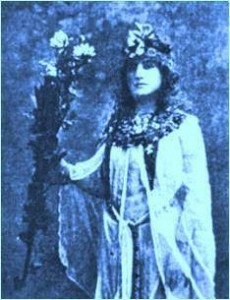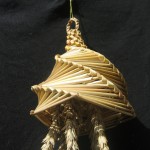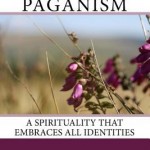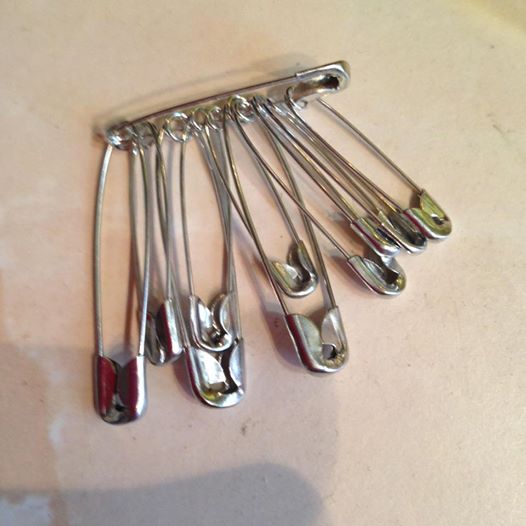“I think it is absolutely essential that people think for themselves because unless they make their own contact with the inner planes, they won’t have any power. This is enormously important that people do not slavishly follow anyone’s lead. I hope witchcraft never has any gurus or leaders. I know that people have criticised Gerald Gardner; I have myself but he once told me, the power is in you and you have to bring that power out.” – Doreen Valiente 1
Does the Pagan movement have leaders? Do we need them? What is a good model of leadership?
I don’t think there is anything wrong with having leaders, but it depends what you mean by leaders. If you mean the kind of people who empower, nurture and teach others, those are the leaders we want. If you mean the kind of people who block others’ access to the numinous, and fleece them of large amounts of money, we don’t want those in the Pagan community – but frankly they would not get very far anyway. Even those paid leaders who work hard and serve others don’t make a lot of money.

We might have a lot of leaders, but I don’t see a lot of followers. Pagans are not sheep, we are goats. We don’t really have congregations (which is basically Latin for “flock”); we are more like tribes. There are many people who serve the Pagan community in an administrative or representative capacity. There are many people who share their thoughts on blogs and in books. There are some leaders who want power, admiration, and followers (fortunately these are fairly few and far between). But I don’t think leaders who want to get rich quick or have a lot of followers will get very far within the Pagan community. Pagans are too independent-minded.
Sometimes Pagans’ independent-mindedness can backfire, as any time someone looks even vaguely like they are on a pedestal, someone will come along and knock them off it. It is good to check first whether the person actually wants to be on the pedestal, or whether they would rather get off it.
Incidentally, I have a small team of people with instructions to kick me up the backside if ever I start exhibiting the symptoms of a Big Name Pagan with a lot of neophytes in tow. This is unlikely, as I am too lazy to organise my own life, let alone anyone else’s.
My approach to leadership is to seek to empower others, and enable them to write and facilitate ritual and so on. However, not everyone who joins a coven wants to write and facilitate rituals, and that is alright. They may have other abilities which could be nurtured.
In Gardnerian and Alexandrian Wicca, every initiated Wiccan is a priestess or priest in their own right. However, a first degree is a priestess or priest unto themselves; a second degree can be a priestess or priest to others; and a third degree to the rest of the community. This is not a hard and fast rule – it is just that the degrees are not expected to take on being a priestess or priest for others until they attain the higher degrees. It is also worth remembering that in Wicca, witches are held to be ‘the hidden children of the Goddess’ – in other words, we do our public service covertly, not necessarily advertising that we are witches. If someone asks me for help, they do so because I have a sympathetic manner, not necessarily because they know that I am a witch. We don’t need to wear a special hat – if we are any good, people will recognise the qualities of witchiness in us, and seek our help. I don’t hide the fact that I am a Wiccan, but I don’t advertise either.
In OBOD Druidry, there are also three grades – Bard, Ovate, and Druid. The Bard is a storyteller and uses words to enchant. The Ovate is more shamanic and prophetic. The Druid is more of an all-round magical practitioner. It is worth reading OBOD’s explanations of what each grade does, as it is more complex than I have suggested with my simple summary.
In Heathenry, there are goði and gyðja (priests and priestesses) who are generally selected by acclaim of their group, because of their experience, or end up leading rituals because they are the most experienced.
In Religio Romana, priestesses and priests are expected to have a sincere calling to the deity for whom they wish to be a priestess or priest, and to carry out research on their chosen deity, and to worship the chosen deity in their home.
In my experience, even if some leaders of Pagan groups let it go to their head for a while, they soon learn that they are leader by consent of the group, and if they do not care for the needs of all the members of the group, and nurture and empower their members, people will leave.
The best Pagan leaders are those who listen – both to the promptings of spirit, and to their group members. A Pagan leader should not regard their community as serving them, but feel that they are serving the community (which includes other-than-human beings). Those who think they are elders are probably not elders; one gets that title by being acclaimed by others (and not just by virtue of being old, either, but by having wisdom and experience). In return, the community should value those who serve. They should not be expected to cover their expenses from their own pocket; if they spend time preparing a day or weekend workshop, and travelling long distance to deliver it, then they should be remunerated for their time, skill, and expenses. I do not think people should ever pay for coven training in Wicca, but I do think leaders of public workshops should be adequately remunerated. We need an organic approach to paying clergy.
When I was high priestess of my coven, I was in that role because I was the most experienced member of the group. As high priestess, I encouraged members of my coven to develop their skills in ritual and magic, so that they could also design and facilitate ritual. If a new member wanted to join, every member of the group had to agree that they could join (it was not just on my say-so).
What are your thoughts on Pagan leadership? How is it in your tradition? Please share in the comments.
Thanks to Julie W for posting the Doreen Valiente quote in the Centre for Pagan Studies Facebook group – as you can see, it inspired this post.
















